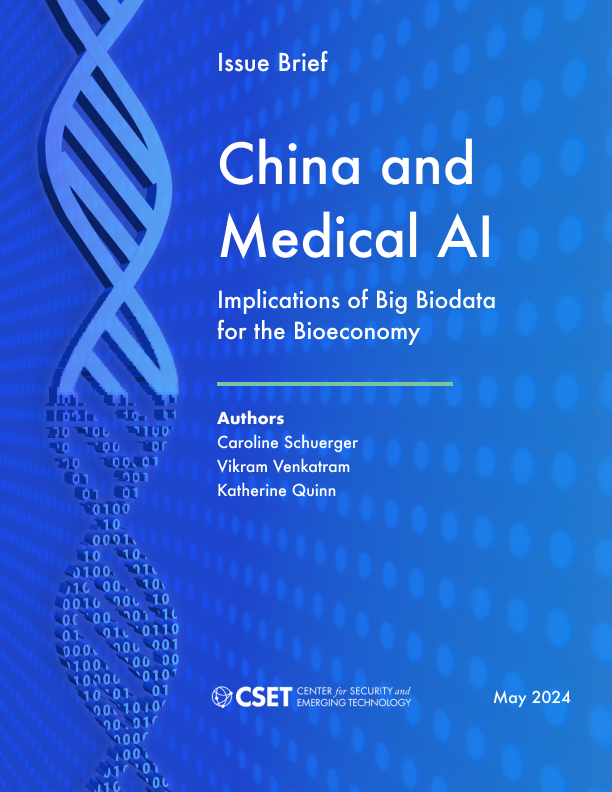Executive Summary
Medical artificial intelligence is an area of emerging technology that leverages biomedical advances and AI to power new discoveries for human health. Medical AI can help researchers discover new medicines, understand complex causes of disease, and predict how patients will respond to therapies. As these applications improve public health outcomes, they also contribute to the growing global bioeconomy. Countries that strategically prioritize medical AI could enjoy a competitive economic advantage and set global standards and norms for future developments.
Medical AI leadership depends on access to large repositories of biological data, or biodata. Biodata can include information collected from individuals, such as their unique genetic sequences or medical records. Researchers and developers who have access to large amounts of high-quality biodata are at an advantage, as this resource is a limiting factor for medical AI advancement.
China has created a comprehensive national strategy to support medical AI development and advance its goals for bioeconomy leadership. This report examines China’s stated goals for medical AI, which range from the collection and protection of vast amounts of biodata, to facilitating research and development, to supporting medical AI commercialization. We find that:
- China has access to publicly-available biodata from around the world, while its domestic datasets are closed off to other countries. Access to more biodata facilitates more powerful medical AI applications.
- Medical AI research publications from both China and the United States are on the rise. The United States only narrowly led China in the production of research publications related to medical AI in 2021, and China’s research output is likely to continue to grow due to the many resources the Chinese government is pouring into this area.
- Beijing is promoting medical AI commercialization, and top Chinese technology companies that have not previously been involved in biotechnology are moving into the medical AI space. Policies to support companies and facilitate regulatory approval can accelerate medical device development.
In sum, China’s strategy for biodata collection and medical AI development could position it to be an economic and technological leader in this sector. Policymakers should consider the implications of this leadership when considering policies to boost U.S. competitiveness and biodata infrastructure.
